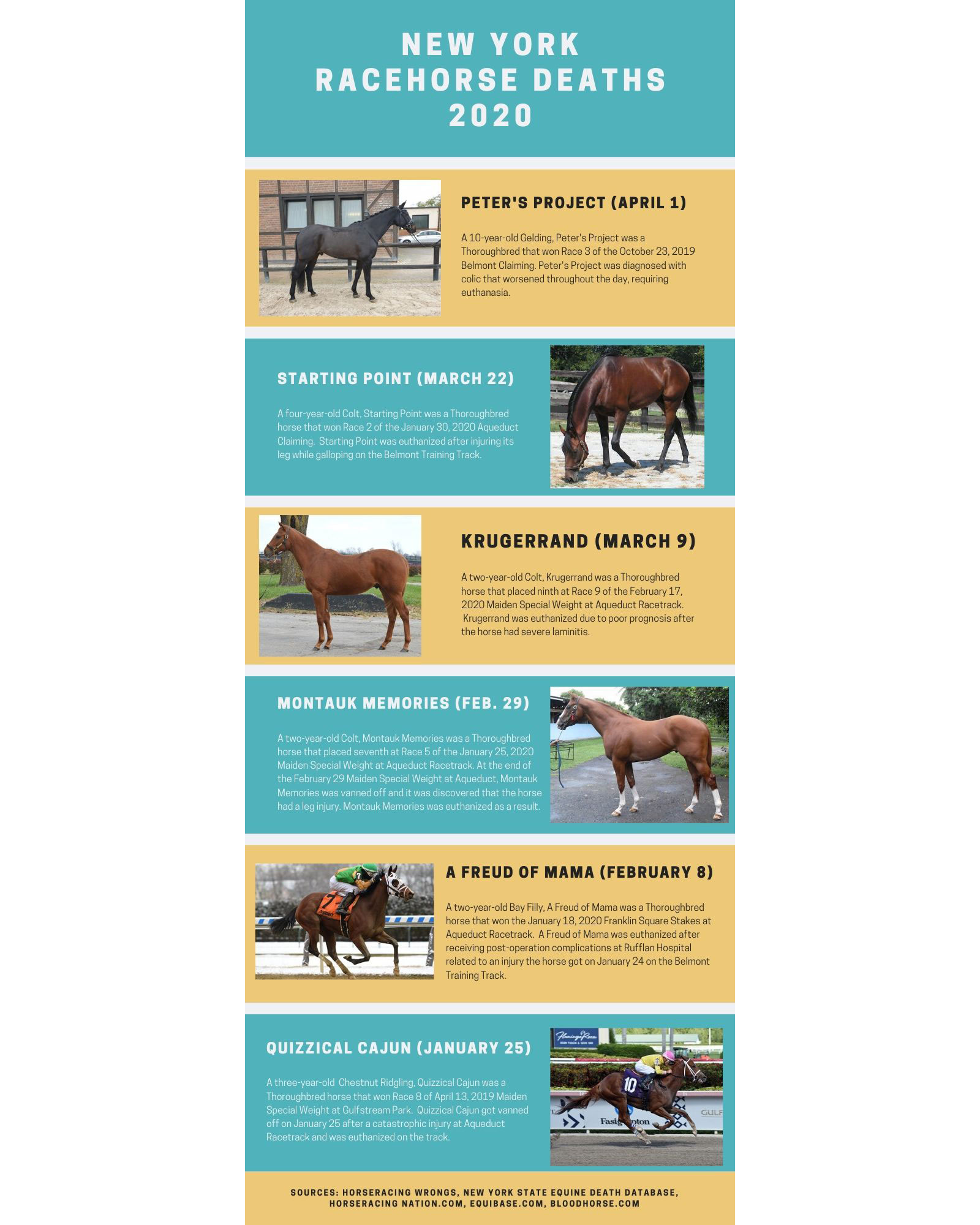
By Anthony Leon
A resolution to build a temporary field hospital at the Aqueduct Racetrack in Jamaica, Queens, dedicated to treat people infected with COVID-19, was signed by President Trump and approved for construction on March 28, prompting the New York Racing Association (NYRA) to cancel the rest of its live winter and spring racing season. The 100,000 square foot facility has already emplaced a coronavirus testing site in its parking lot through SOMOS NY, and will gain more medical equipment, supplies, and hospital beds when the hospital opens.
This and three other field hospitals at The Brooklyn Cruise Terminal, the College of Staten Island, and the New York Expo Center, will provide 1,000 beds per-borough during the pandemic, the resolution stipulates.
“I think also if it’s a city owned site versus a private site makes a difference because if it’s a city or state owned site, it’s something that the government has more control over it versus if it’s a private site, you have to work with the property owner,” Daphne Lundi, an urban planner who is the Vice Chair of the Diversity Committee at the American Planning Association New York Metro Chapter, said. Aqueduct Racetrack is owned by New York State.
Location and existing infrastructure are also important factors to consider in these projects, Maulin Mehta, urban planner and is the Senior Associate for the Regional Plan Association’s State Programs and Advocacy unit in New York, said.
“I think the advantage of the racetrack is that it is open, so you can theoretically tap into the existing infrastructure like the water, the gas, the electricity, but have flexibility in how you fill out the space as opposed to, you know, it might be harder to put a full-size hospital together if you have to use an existing building that maybe it’s not up to snuff,” Mehta said.
The backstretch community of the NYRA, who include the people working in the barn areas, as well as their families, have received help from many different organizations. The Jockey Club Safety Net Foundation, for example, donated 1,000 Kroop’s brand face shields. This comes at the same time as some workers are left without jobs due to the cancellation of horse racing.
“When it is determined to be safe and reasonable, it’ll be welcome because horse racing is a big industry, it has a lot of jobs… it’s going to be important at some point in the future, for those jobs to continue,” Jim Gagliano, the President and Chief Operating Officer of the Jockey Club, said.
The NYRA made $2.1 billion in 2019 all-sources handle, which includes bets made at off-track betting facilities. The backstretch community consists of over 3,500 workers, Karen Chavez, the general manager of the New York Race Track Chaplaincy, said.
Backstretch workers who need assistance with medical needs, rent and food can turn to the New York Race Track Chaplaincy, Chavez, said.
“We’ve partnered with the local food banks and they’re providing meals to us, non-perishables, so we can distribute,” Chavez said. “We’re doing multiple distributions at Aqueduct as well as Belmont Race Track every week so we can provide to all of these families. So, this week for example, we did it twice and we gave food to about 700 people and that’s a huge help to them.”
All of the volunteers at the NY Race Track Chaplaincy take the necessary precautions when distributing food, such as social distancing, Chavez said.
Since the NY Race Track Chaplaincy is a non-profit organization that started in 1986, it takes donations such as food, clothing, furniture and other household items. These items are used to stock their food pantry and the Closet of Hope.
Although the number of volunteers has gone down due to the coronavirus, Chavez said the number of donations to the NY Race Track Chaplaincy have remained consistent.
“It actually, surprisingly, has not gone down,” Chavez said. “If anything, more people are willing and have been donating to help us keep going because they have realized that we haven’t closed and that the majority of other organizations and places are not available to help the community… At this time of the year, we normally wouldn’t see these many donations.”
In terms of horse racing, one organization believes it shouldn’t exist. Horseracing Wrongs is the only non-profit organization in the country that is looking to completely eliminate horse racing.
“One of the parts of horse racing that most people again are generally unaware of is the never ending cruelty of confinement,” Patrick Battuello, the founder and president of Horseracing Wrongs, said. “These horses are kept locked in 12 by 12 stalls for over 23 hours a day and then maybe even worse, because the tracks are shut down because of COVID-19, they may not be getting out of their stalls at all… These are… animals that we’re locking up just so we can make a dollar off of them in gambling and for shallow entertainment.”
The Belmont Races are currently scheduled to start on April 24, according to the NYRA’s calendar. However, Battuello believes that in the declining horseracing industry, these meets are not going to happen.
“I think that’s just a tentative date they’re throwing out there,” Battuello said. “They’ve already said they haven’t cancelled the Saratoga meet in July. The way it’s looking now, it’s not going to happen.”

